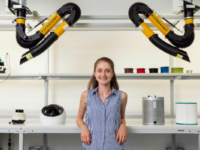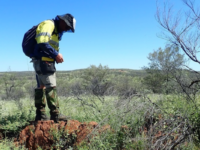Australia’s national science agency CSIRO has announced that it is broadening its Kick-Start program which looks to benefit more SMEs and scale-ups who are in need of research and development (R&D) funding and expertise.
The program has been expanded with an increase in eligibility to include businesses with a turnover of up to $10 million, from the previous requirement for businesses to have a turnover of up to $1.5 million.
The CSIRO Kick-Start program offers facilitation and dollar-matched funding for businesses, allowing them to access CSIRO’s research expertise and capabilities for their R&D projects. Through the program, SMEs are able to receive assistance from facilitation to help refine the research question, connecting them with relevant CSIRO researcher expertise and capability, and providing dollar-matched funding support to improve the affordability or expand the scope of R&D services.
Since its inception in 2017, the program has helped launch over 260 small business projects, contributing just under $24 million in R&D activities. Collectively, these companies now hold a market value exceeding $2 billion.
CSIRO Chief Executive Dr Doug Hilton said that the expansion of the program underscored CSIRO’s commitment to create benefits for Australia by supporting Australian entrepreneurship and innovation.
“CSIRO can absolutely play a role in supporting SMEs to embrace research and in stimulating entrepreneurship among our scientists and others in the community,” Dr Hilton said. “Expanding the eligibility of the CSIRO Kick-Start program means we can offer more Australian businesses, more Australian innovators [and] more Australian entrepreneurs access to the resources, knowledge, and support they need to flourish.”
Dr Megan Sebben, CSIRO’s Kick-Start Program Manager, explained that today’s rapidly evolving business landscape means that “innovation is the lifeblood of success”. Dr Sebben poined out that many start-ups and SMEs face barriers, such as limited expertise and insufficient funding, that hinder R&D access.
“Our program serves as a driver for change, providing comprehensive facilitation to overcome these challenges,” Dr Sebben concluded.















